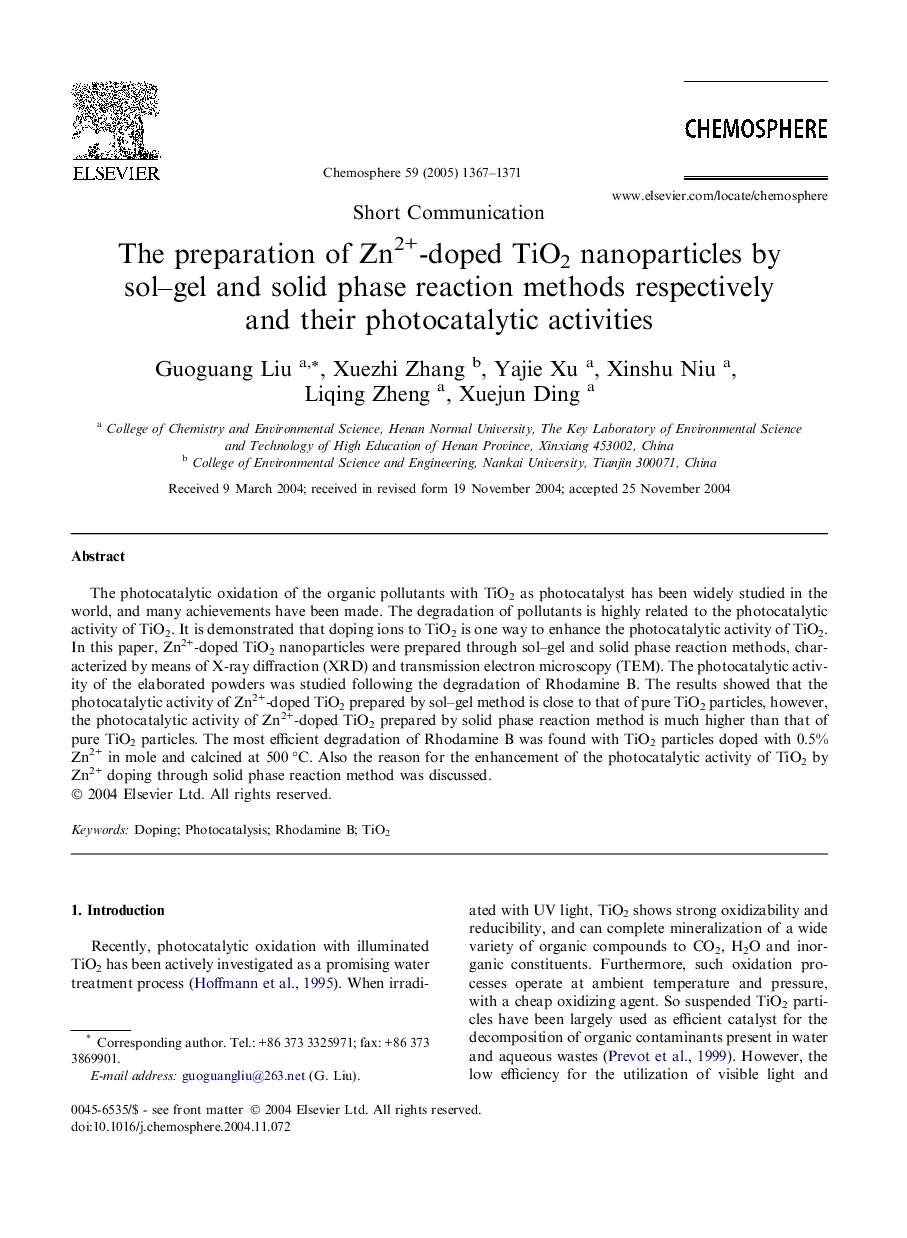| Article ID | Journal | Published Year | Pages | File Type |
|---|---|---|---|---|
| 9452127 | Chemosphere | 2005 | 5 Pages |
Abstract
The photocatalytic oxidation of the organic pollutants with TiO2 as photocatalyst has been widely studied in the world, and many achievements have been made. The degradation of pollutants is highly related to the photocatalytic activity of TiO2. It is demonstrated that doping ions to TiO2 is one way to enhance the photocatalytic activity of TiO2. In this paper, Zn2+-doped TiO2 nanoparticles were prepared through sol-gel and solid phase reaction methods, characterized by means of X-ray diffraction (XRD) and transmission electron microscopy (TEM). The photocatalytic activity of the elaborated powders was studied following the degradation of Rhodamine B. The results showed that the photocatalytic activity of Zn2+-doped TiO2 prepared by sol-gel method is close to that of pure TiO2 particles, however, the photocatalytic activity of Zn2+-doped TiO2 prepared by solid phase reaction method is much higher than that of pure TiO2 particles. The most efficient degradation of Rhodamine B was found with TiO2 particles doped with 0.5% Zn2+ in mole and calcined at 500 °C. Also the reason for the enhancement of the photocatalytic activity of TiO2 by Zn2+ doping through solid phase reaction method was discussed.
Keywords
Related Topics
Life Sciences
Environmental Science
Environmental Chemistry
Authors
Guoguang Liu, Xuezhi Zhang, Yajie Xu, Xinshu Niu, Liqing Zheng, Xuejun Ding,
